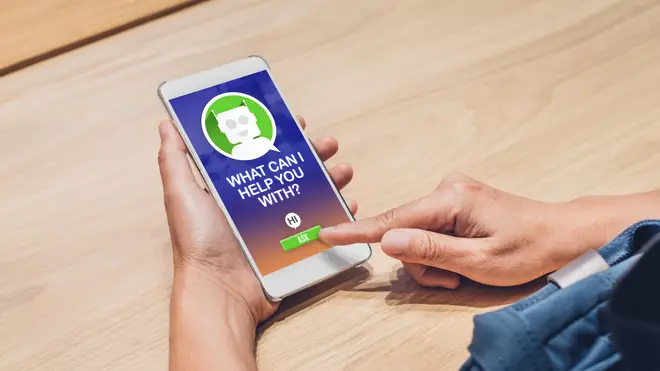
Ian Payne 4am - 7am
11 May 2023, 19:44

Labour peer Lord Knight of Weymouth is chief education adviser at TES Global Ltd, a digital education company.
A-level computer science students are still learning about floppy disks, but not artificial intelligence (AI), Parliament was told.
Labour peer Lord Knight of Weymouth, chief education adviser at TES Global Ltd, a digital education company, told peers he met an A-level student at the weekend who revealed this.
He said: “I was lucky enough this weekend to share a platform at a conference with a young woman whose name is Monica, who is very articulate, is studying computer science at A-level.
“And, when asked about the content of the computer science curriculum, which is often prayed in aid in terms of the digital literacy of our young people and the media literacy, she reminded the audience that she still has to learn about floppy disks in the curriculum, because the curriculum really struggles to stay up to date with what’s going on.
“She is not learning about artificial intelligence in school because of that very problem.
“The only way she could do so, and she did do so, was through an extended project qualification that she did last year.”
Floppy disks, flexible removal disks for storing data, were used from the 1970s to the 1990s but were declining in use towards the end of the millennium and rarely used after 2000.
Meanwhile, AI is a rapidly growing area of innovation in the sector, becoming increasingly relevant as time goes on.
Lord Knight emphasised the importance of media and digital literacy, including understanding concepts such as algorithms, machine learning, large language models and neural networks.
He said: “The media literacy levels of adults and children in this country are simply not good enough.
“We need clarity as to who owns the problem of that lack of media literacy and we are not getting that. This is our opportunity to address that.”
The Labour peer argued that media literacy is key to a “better, safer environment for the online world” because it gives users “confidence and competence online”.
His comments came as the House of Lords continued its line-by-line scrutiny of the Online Safety Bill, which aims to tackle illegal and harmful content online.
Digital minister Lord Parkinson of Whitley Bay said: “Media literacy is a crucial skill for everyone in the digital age.
“Key media literacy skills are already taught through a number of compulsory subjects in the national curriculum.
“To reassure members that pupils such as Monica are not being taught historic things like floppy disks, but also emerging and present challenges, the computing curriculum ensures that pupils are taught how to design programmes, systems and accomplish goals such as collecting, analysing, evaluating and presenting data.”
However, Lord Knight expressed concern that just 1.4% of secondary school pupils even studied computer science at GCSE.
He highlighted Ofcom data which showed that only two out of three 16 to 24-year-olds were confident and able to identify scam adverts, and that young people are less confident than the general population in identifying search engine advertising.
Lord Knight questioned the role that online platforms play in helping improve users’ media literacy skills, and Ofcom’s duty in this regard, which has not been updated since the Communications Act 2003.
He said: “There is no doubt in my mind that, as a result of all the changes that have taken place in the last 20 years, that that duty (of Ofcom) needs updating.”